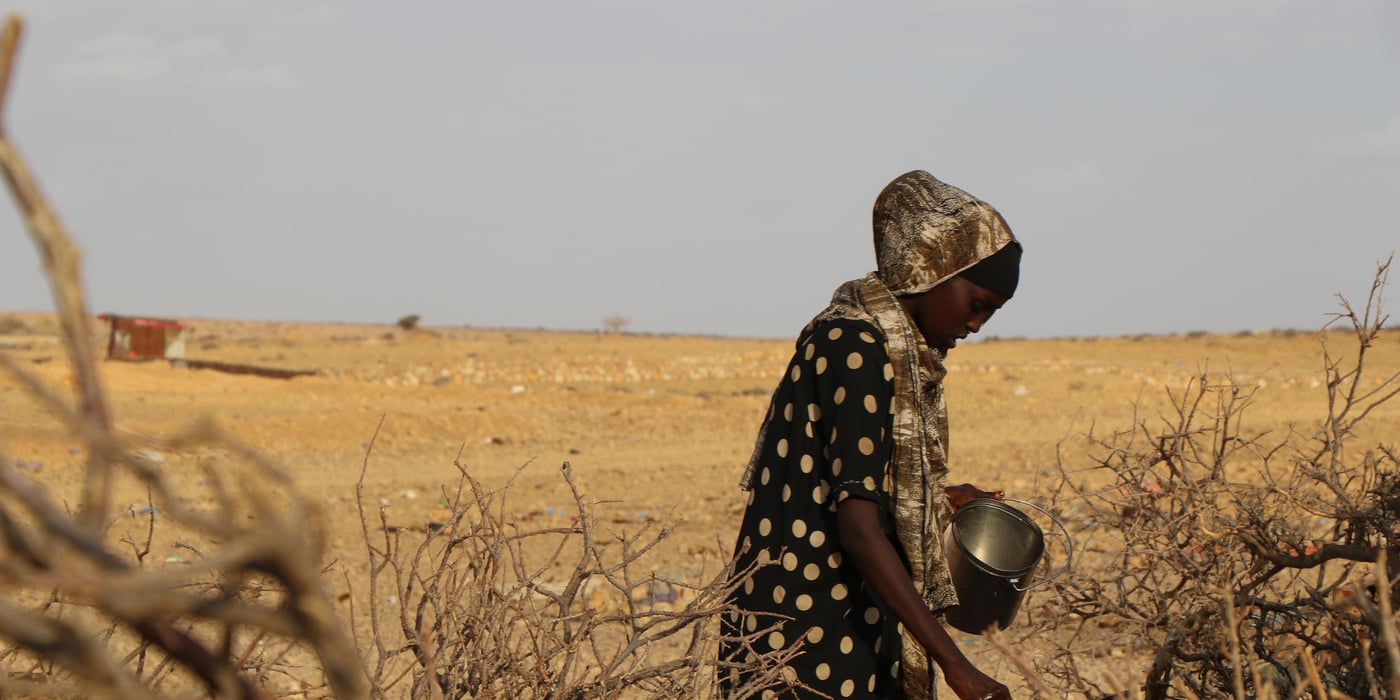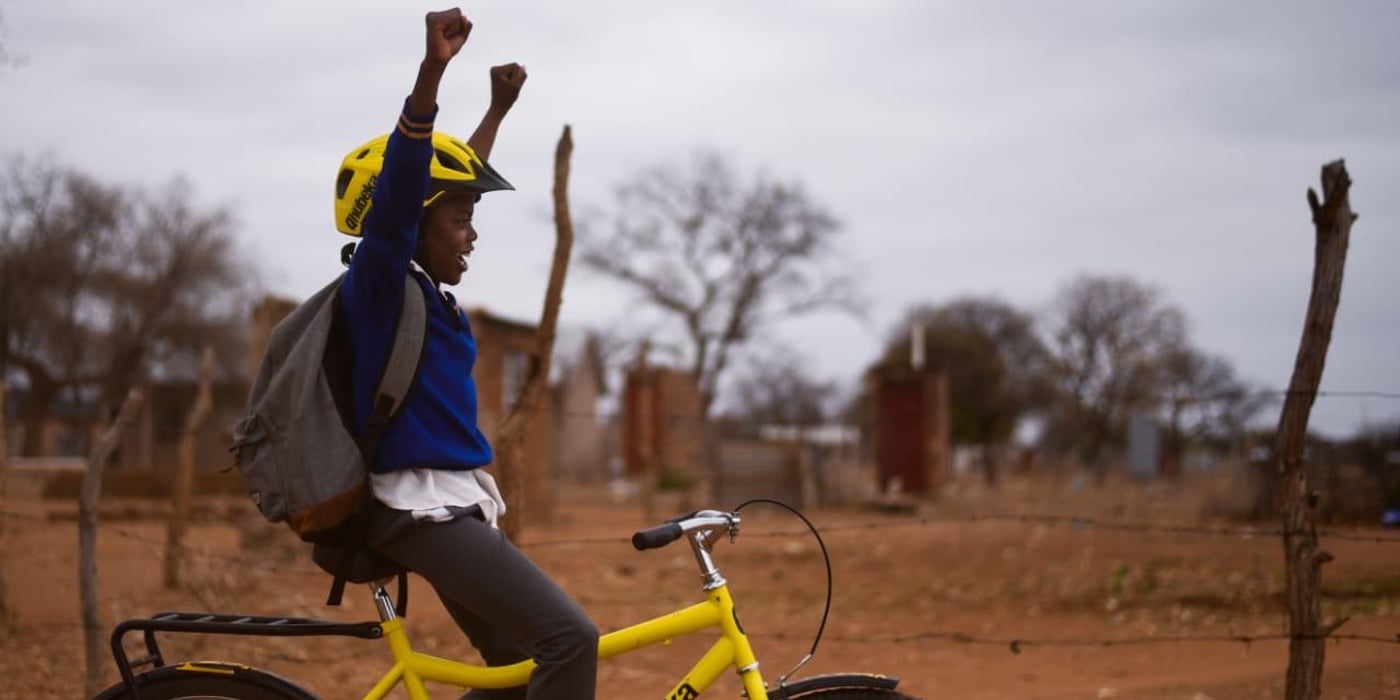
Armed militias would move from village to village, chopping people down with axes and machetes, and burning houses. These are the horrifying details shared by refugees as they land on the shores of Uganda still traumatised by the daunting scenes they had witnessed back home.
The same tribal conflict did not spare Bura's village. Bura is one out of thousands of Congolese, fleeing to Uganda.
When his village was attacked, he became separated from his family: “I don’t know how they are surviving, what they are eating to stay alive,” he worries. His youngest child is five, and the oldest is seventeen.
Bura heard that two of his children remained in DR Congo with his wife, trying to find safety. Meanwhile, three of his children crossed Lake Albert into Uganda. When he heard that they had been relocated to Kagoma, Uganda, Bura decided to follow them.
But Bura is not the only one trying to reach the safety of Uganda by crossing Lake Albert. He recalls seeing people gathering on the Congolese side of the water, waiting for their turn to cross on fishing boats and canoes. As the sun sets and the dark of the night settles, refugees, likely aware of the risks of crossing the lake on rickety and unsafe boats at night, would spend the night on the shore until sunrise to begin the crossing. Several have already drowned attempting the crossing.

Escaping violence
More than 57,000 people from DR Congo have fled to Uganda since December 2017, the majority arrived by boat after crossing Lake Albert. They fled and continue to flee inter-communal fighting in the north-eastern Ituri region. Refugees have reported that security has severely deteriorated in the area, with many civilians killed and hundreds of houses burnt down.
Bura recounts stories of people hiding inside the bushes along the DR Congo lake shore by fear of being caught by the armed groups. Refugees have reported accounts of rebel groups and Congolese authorities preventing people from escaping the violence, going as far as stopping boats mid-lake.
While fleeing from his village to Lake Albert, Bura was stopped by armed men with machetes, who asked for his documents. He had lost his identification card. Back in his village, militiamen had robbed him of all his assets, including 50 goats, three motorcycles and burned his house to the ground. Bura managed to keep his phone and, miraculously, the armed men on the shore let him pass.
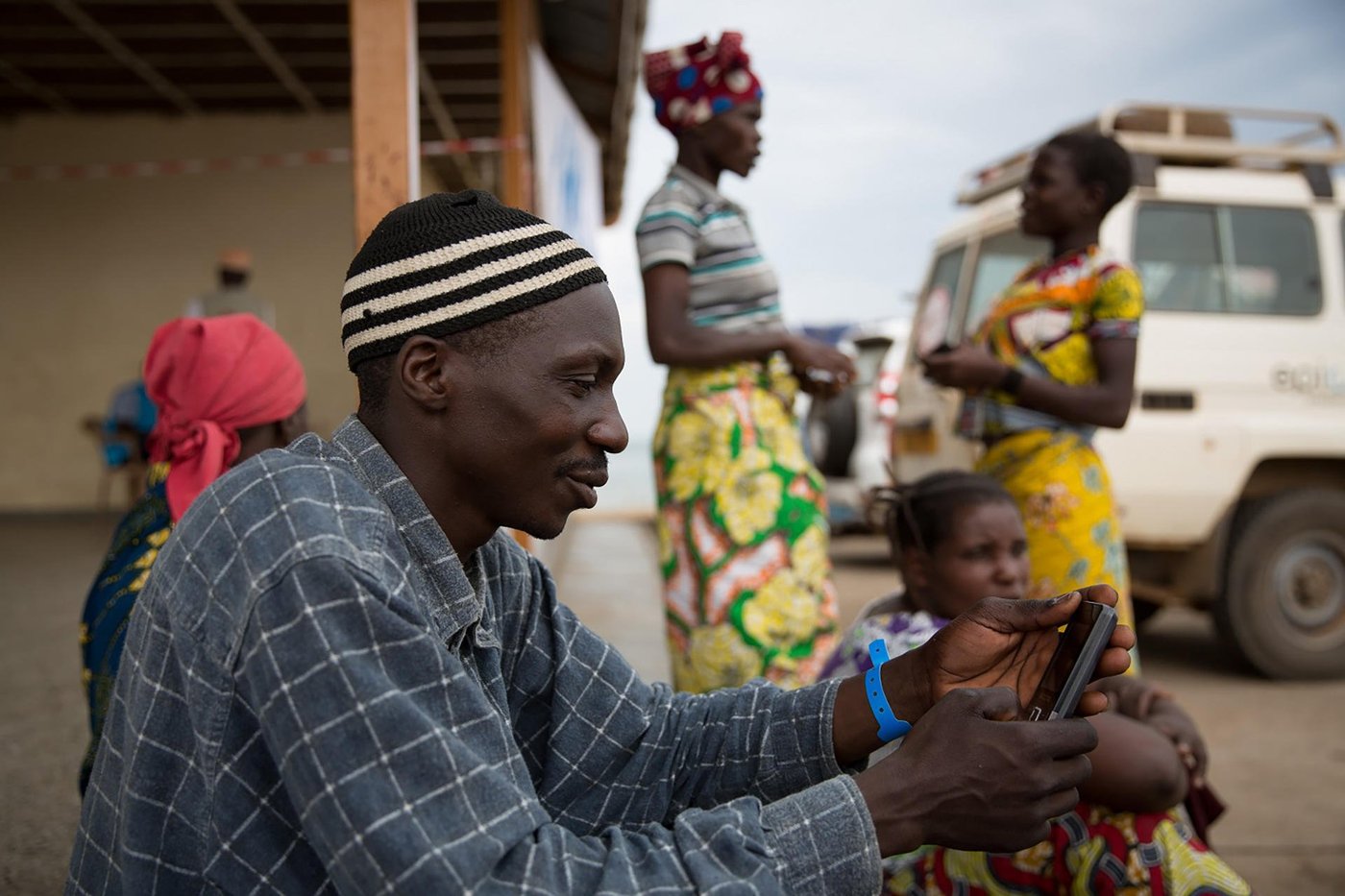
From the moment he fled his village till he reached Uganda, Bura didn't have a proper meal and only ate some local bread and water handed out to him when he reached the landing zone in Uganda. Bura made it across the lake. He arrived at the Sebagoro landing zone in Uganda. There, he tried to call his family, but without a charger and money to buy credits, the phone was useless.

Bura finally boards a bus that will transport him and other newly arrived refugees from the Sebagoro landing site to the reception centre in Kagoma, where he hopes to find his family.
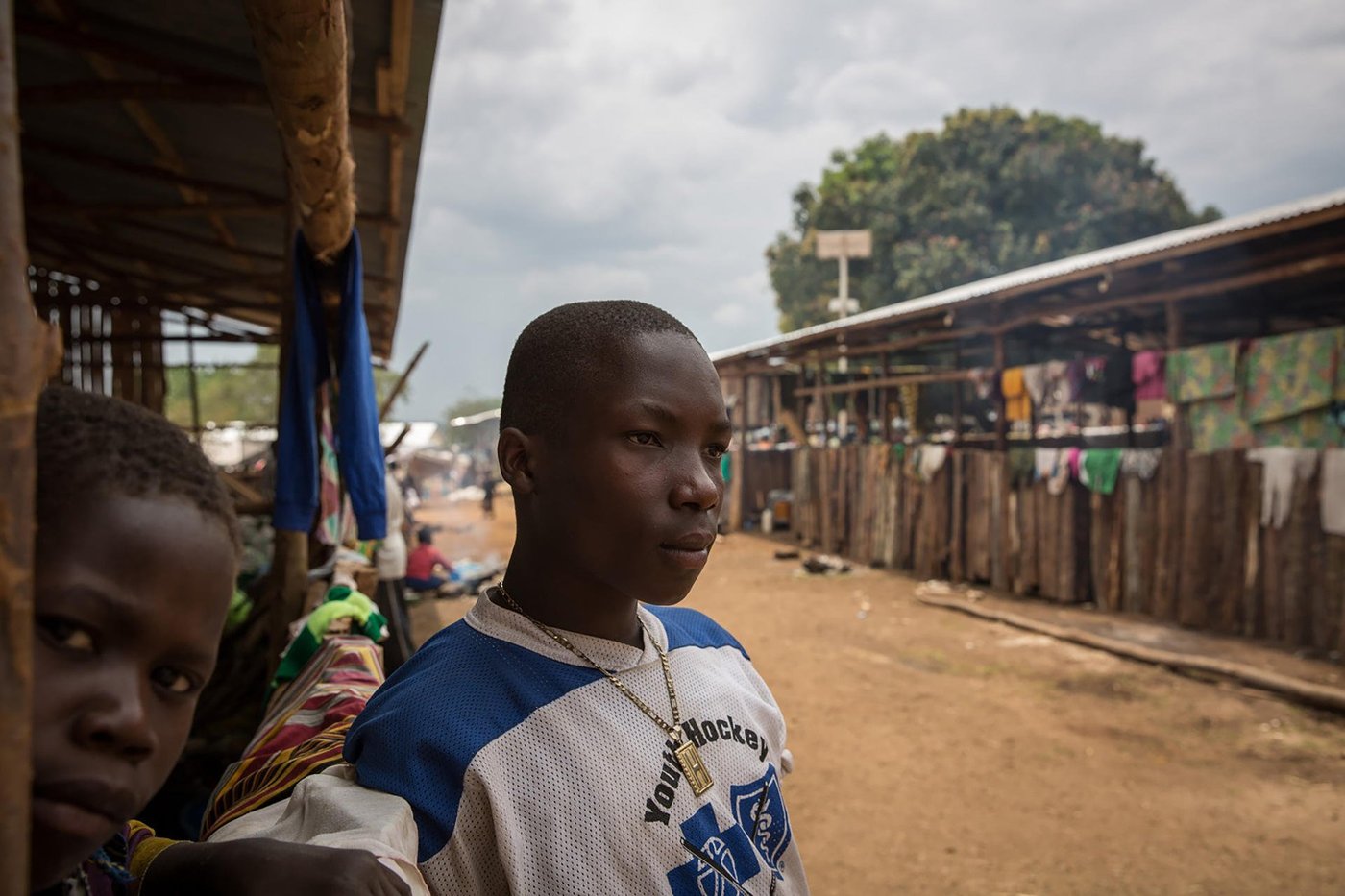
In the meantime, Bura's eldest son Moïse waits in Kagoma. He wonders how his father is doing. Before being forced to flee violence in DR Congo, Moïse was enrolled in first year of secondary school. "I hope to continue schooling in Uganda,” says Moïse who wants to become a French teacher one day.
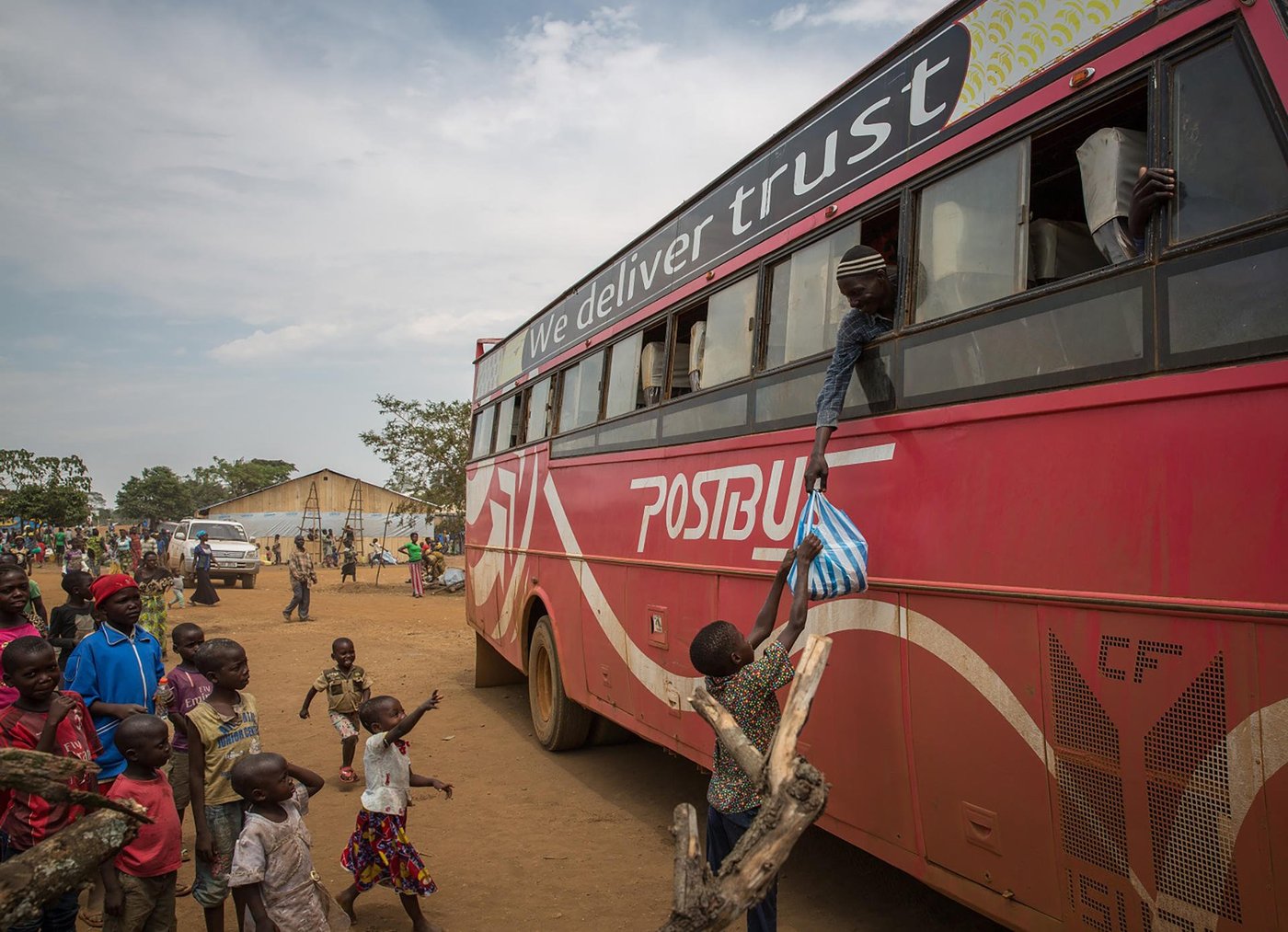
When Bura arrives at the reception centre in Kagoma, three of his children immediately recognize him.
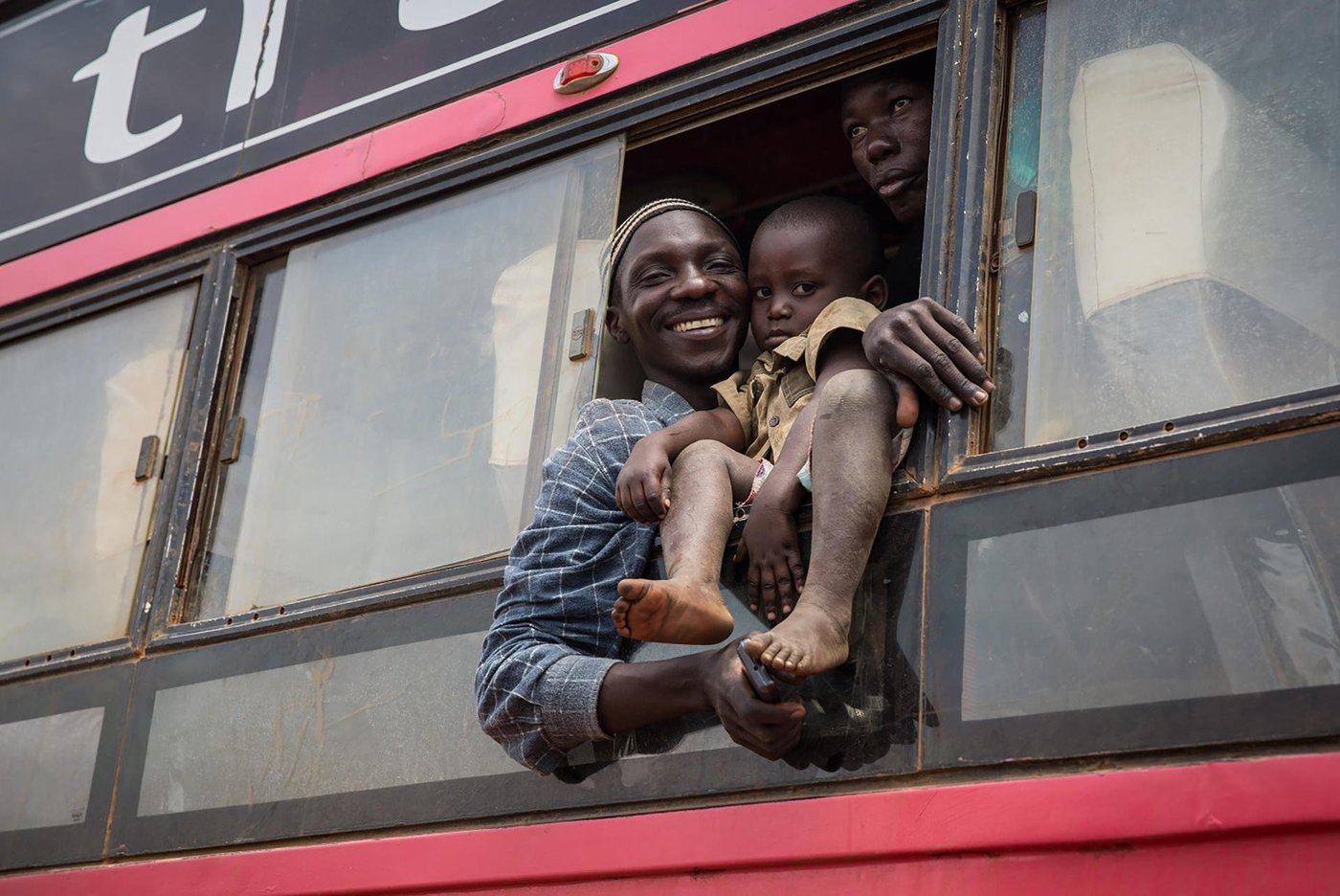
Carried away with joy, Bura's youngest son rushes to get in the bus to hug their dad. His father has returned.
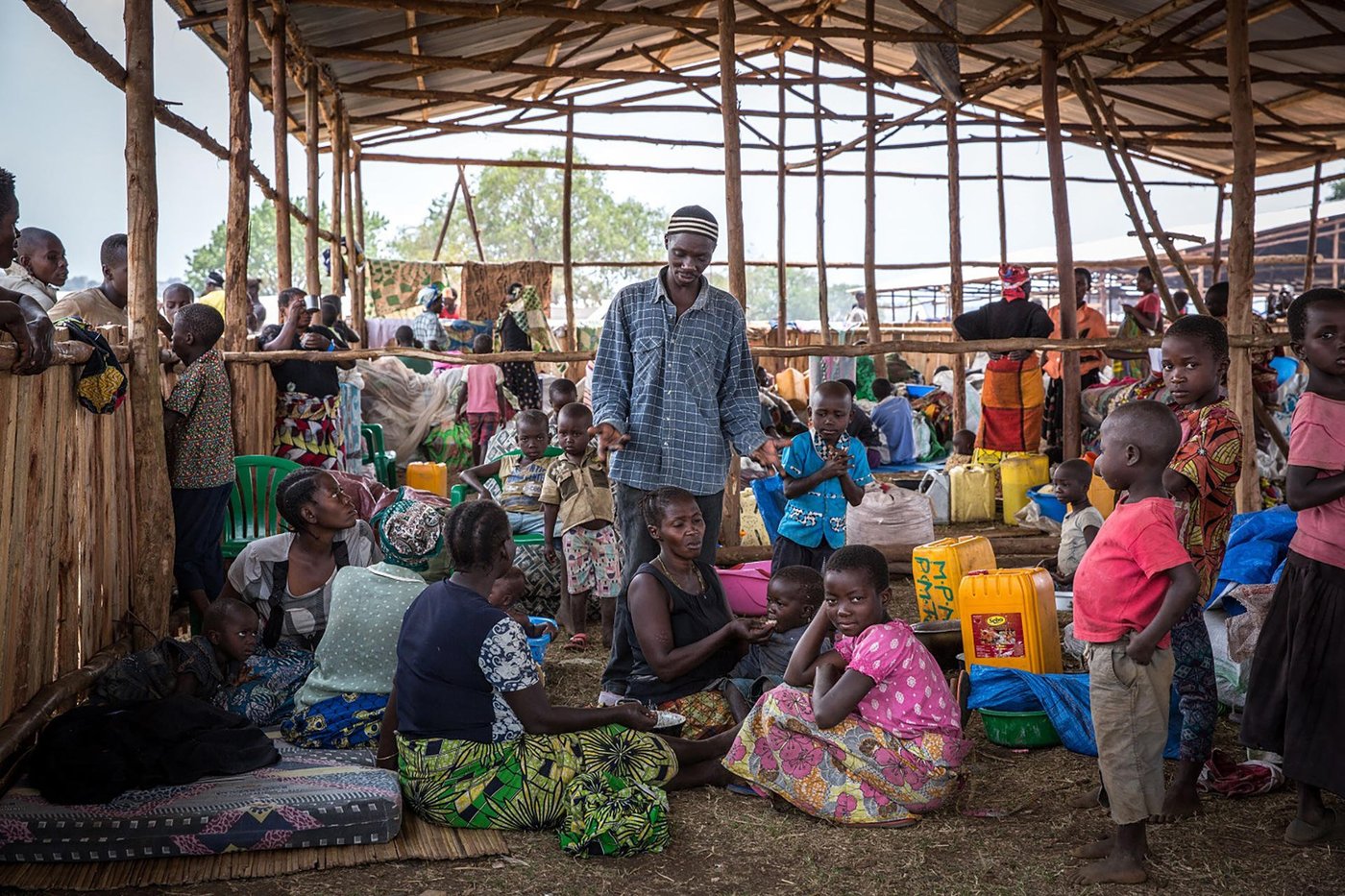
Bura is finally reunited with his family. For the first time in a long time, they’re having lunch together.


